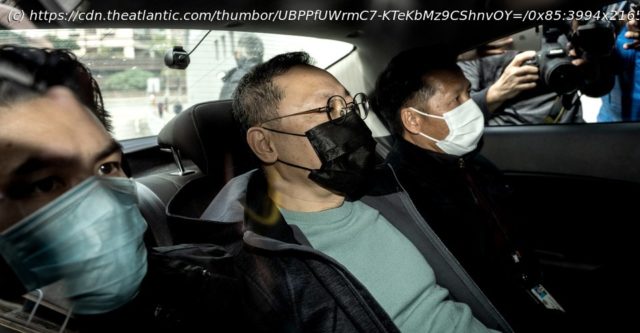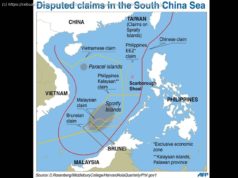Mass arrests in Hong Kong show both the power of an organized opposition and the authorities’ fear of it.
The days in Hong Kong have recently been bookended by two numbers, neither of them comforting. One, the day’s COVID-19 infections, is announced at a set time by health officials, and despite the city’s relatively low numbers compared with Europe and the United States, remains stubbornly high compared with some regional neighbors. The other is compiled more chaotically and is in many ways more worrying. Beginning in the early morning, alerts land on social media, normally in the form of a note written by a trusted associate on a prodemocracy politician’s Facebook page, alerting the public that the politician has been taken by police. In some cases, the arrests are filmed, shaky clips that capture the moment a group of officers descends on a sleepy suspect whose alleged crimes might be as minor as shouting a few words, but whose punishment may be as severe as life in prison. News of the first arrest is almost always followed by news of others, the tally ticking upward through the day. Even with this now-familiar rhythm, buttressed by tightening political repression and persistent sickness, this morning was stunning. Before 7 a.m., reports of the first arrest landed in the familiar form, but unlike days before, when the number of suspects would settle at a handful or even a dozen, for the next few hours the number rose sharply. In total,53 prodemocracy politicians, activists, lawyers, and academics were arrested, police said. (The number was more than double the 25 new COVID-19 cases announced.) The arrestees were rounded up for allegedly committing subversion, a violation of the national-security law imposed last year by Chinese authorities and an offense that carries the possibility of a life sentence. They allegedly took part, to varying extents, in an unofficial primary election held last summer by prodemocracy groups. The primary was part of a plan based on the premise of laam caau, an idea adopted by the most fervent protesters that roughly translates to “burn with us,” a philosophy of mutual destruction meant to punish Beijing. China’s intention appears to be different: to reshape Hong Kong’s political system into one that maintains the veneer of a democracy, which sets the city apart from the mainland, but is completely devoid of meaningful opposition, eliminating the unwanted surprises and embarrassing public rebukes of the past two years. Those taken spanned the political spectrum, and generations of Hong Kong’s prodemocracy movement. They included an American lawyer, a social worker, and dozens of younger, more radical activists who rose to prominence during the 2019 protests. Officers from the police’s national-security unit also visited the newsrooms of three media outlets, demanding that staff turn over materials to authorities within a week, and raided the office of a well-known law firm. No longer satisfied with simply stifling Hong Kong’s boisterous opposition, the authorities have sought to eradicate the prodemocracy camp and anyone even loosely affiliated with it.






